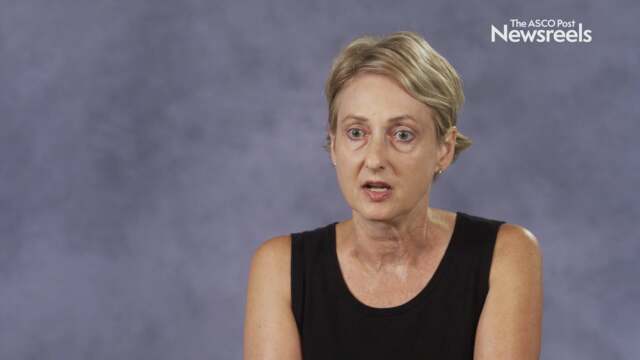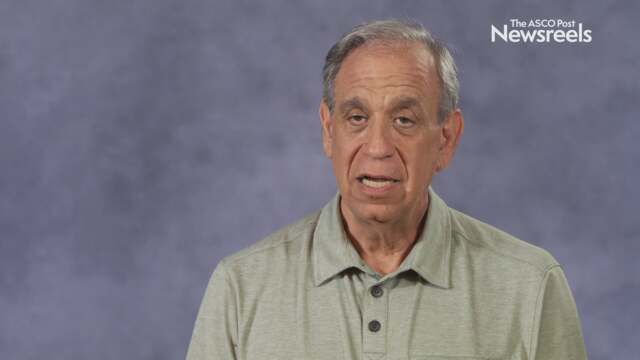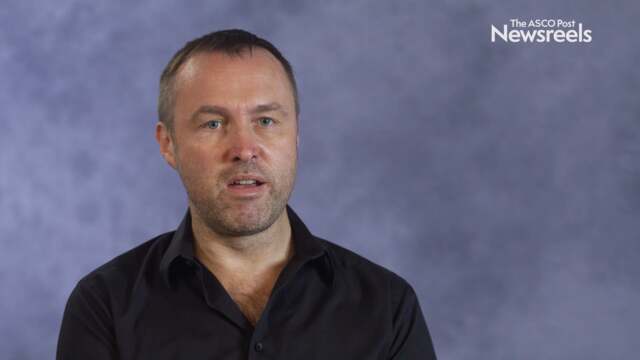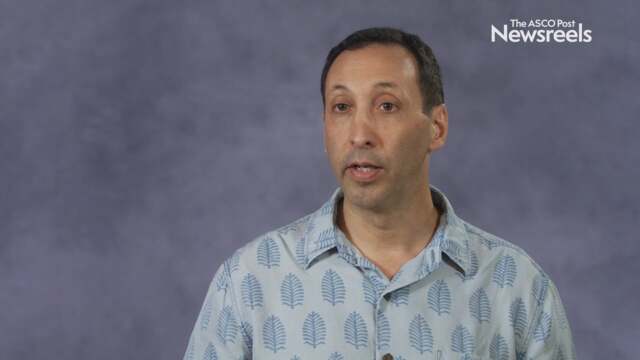Jonathan W. Friedberg, MD, on Follicular Lymphoma: Novel Combination Therapies
Pan Pacific Lymphoma Conference 2018
Jonathan W. Friedberg, MD, of the University of Rochester Medical Center, discusses treatments that enhance progression-free and overall survival and clear minimal residual disease—obinutuzumab plus chemotherapy, lenalidomide, and rituximab—and the types of lymphoma patients who may benefit.
Laurie H. Sehn, MD, MPH, of the British Columbia Cancer Centre for Lymphoid Cancer, discusses the challenges of treating high-grade B-cell lymphoma in older patients and those with comorbidities. Several strategies have been devised, but more research is needed as well as more options for novel therapies.
Andrew D. Zelenetz, MD, PhD, of Memorial Sloan Kettering Cancer Center, discusses the various ways genomics can be used in diagnosing and treating non-Hodgkin lymphoma and the need for a proper support tool to help interpret the data.
Related Videos
Kieron M. Dunleavy, MD, of George Washington University, discusses the need for drug combinations to improve lymphoma therapy, despite unexpected toxicities, as our understanding of the molecular biology grows.
Sagar Lonial, MD, of the Emory University School of Medicine, discusses the importance of planning for relapse based on the treatment a patient has received, new targets for refractory myeloma, and the role of cellular therapy.
Steven M. Horwitz, MD, of Memorial Sloan Kettering Cancer Center, discusses aggressive subtypes of peripheral T-cell lymphoma and the coming data that may help clarify what could be the most effective treatments.
Julie M. Vose, MD, MBA, of the University of Nebraska Medical Center, and David G. Maloney, MD, PhD, of Fred Hutchinson Cancer Research Center and winner of this year’s Oliver Press Memorial Award, discuss three CAR T-cell products for lymphoma treatment, comparing their efficacy, toxicity, ease of use, and the clinical resources needed.
Bruce D. Cheson, MD, of Georgetown University Hospital, and Richard I. Fisher, MD, of Fox Chase Cancer Center, discuss ways to incorporate PET and CT scanning into standard of care for and research studies on lymphoma.
Sagar Lonial, MD, of the Emory University School of Medicine, discusses the importance of planning for relapse based on the treatment a patient has received, new targets for refractory myeloma, and the role of cellular therapy.
Kieron M. Dunleavy, MD, of George Washington University, discusses the need for drug combinations to improve lymphoma therapy, despite unexpected toxicities, as our understanding of the molecular biology grows.
John G. Gribben, MD, DSc, of the Barts Cancer Institute, discusses how understanding the role of the tumor microenvironment can help identify treatment targets, including combination therapies, and improve outcome for patients with indolent lymphomas.








